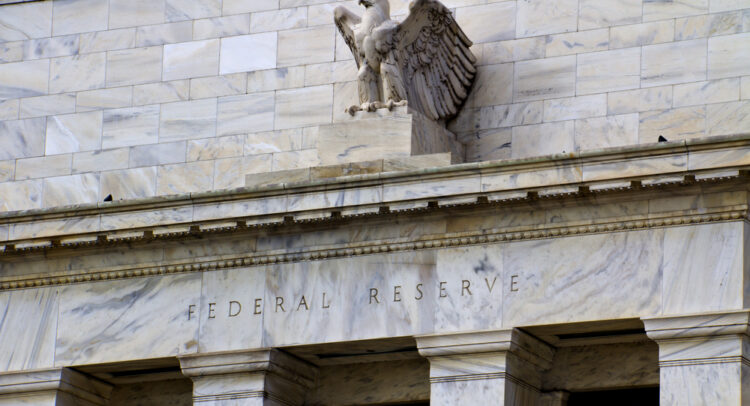The Federal Reserve Board of Governors was established over a century ago to provide the nation with a safe and stable monetary and financial system. Headquartered in Washington, D.C., the Federal Reserve’s decisions can have a marked impact on your personal finances.
Discover the Best Stocks and Maximize Your Portfolio:
- See what stocks are receiving strong buy ratings from top-rated analysts.
- Filter, analyze, and streamline your search for investment opportunities with TipRanks’ Stock Screener.
The Fed is empowered by Congress to support “maximum employment, stable prices, and moderate long-term interest rates.” While these functions are focused on the macroeconomic environment by definition, the effects of its policy decisions and deliberations are felt by every household.
What is the Federal Reserve?
The Federal Reserve is a system of twelve Reserve banks that are divided by district. The Fed–as it is also known–manages U.S. monetary policy, regulates banks, and monitors the financial system.
It was established in 1913, and since 1977 has operated with the dual mandate to maintain stable prices and maximum employment. The Fed’s decisions regarding interest rates are made with these considerations in mind, and investors pay close attention to the statements of the Fed’s regional bank presidents for indications of the future of monetary policy.
One of the tools the Fed has at its disposal is determining the open market rate. This is the target range that banks must pay each other when borrowing funds overnight. This range can vary wildly, and lurched as high as 20% in the early 1980s in order to address high inflation. It also veered as low as 0.0-0.25% towards the end of 2008 due to the Great Recession, and again in March 2020 at the onset of the Covid-19 pandemic.
How Do Fed Decisions Affect You?
Interest rates that the banks charge their clients will fluctuate based on the Fed’s range. It does not align exactly, however, and each bank will make their own decisions. That being said, the interest rates that banks charge their customers will move in line with the Fed’s decision.
In practice, this means that when the Fed rate goes up, accessing finance becomes more expensive. The opposite is also true, and when the Fed rate goes down, it will become cheaper to obtain financing.
If you are seeking to obtain a loan, a higher Fed rate will make this more difficult. This can have significant implications if you are hoping to get a mortgage, receive an auto loan, or access funding for another purpose.
This is for two reasons. The first, which is fairly straightforward, is that banks will increase their interest rates in line with the Fed’s rate. The second is that rising interest rates tend to depress economic activity, which can make banks more conservative in their lending practices. This can make it harder to obtain financing, especially if your credit history is less than pristine.
At the same time, the interest rates that savers will enjoy also tend to shift in the same direction as the Fed rate. Therefore, if you are keeping your money invested, a higher interest rate will allow you to enjoy greater earnings in either your high-yield savings account, or an investment in a Certificate of Deposit or Treasury bonds and notes.
Additionally, there are larger impacts beyond your direct lending. For instance, a lowering Fed rate can signal that the economy is going to accelerate, as cheaper financing will allow companies to invest and expand. This can signal a rising stock market and the other implications that entails (such as growing 401(k) funds and more job opportunities, for instance).
How Should You React to the Fed’s Decisions?
Like most personal financial decisions, your own unique situation will shape the best response to the decisions of the Federal Reserve.
In general, your long-term financial objectives should not change because of these policy decisions. Your retirement goals, savings benchmarks, and future planning should not be materially impacted. Your contributions to your retirement accounts should remain consistent, your monthly budgets should continue to be balanced, and you should continue to earn more than you spend.
That being said, the Fed does have the potential to affect your wallet in the short term. Understanding the macro environment can help you determine if now is the best time to make a big purchase or whether it might make sense to wait before taking on additional financial obligations.
In addition, as interest rates fluctuate, it could be worthwhile to consider shifting your portfolio to better position yourself to account for these changes. As always, meeting with a certified financial planner can help you determine the right path for you and your family.
Conclusion: The Fed and You
The Federal Reserve is a powerful institution, and its decisions have large ramifications that extend throughout the entire economy. At the end of the day, personal finance decisions are, by definition, based on your own personal situation.
The most important factor remains how you steward your monies, regardless of the macroeconomic mood. That being said, it is always a good idea to understand the larger environment and how it could impact you.
Learn money management, and use data-driven stock insights with TipRanks.









